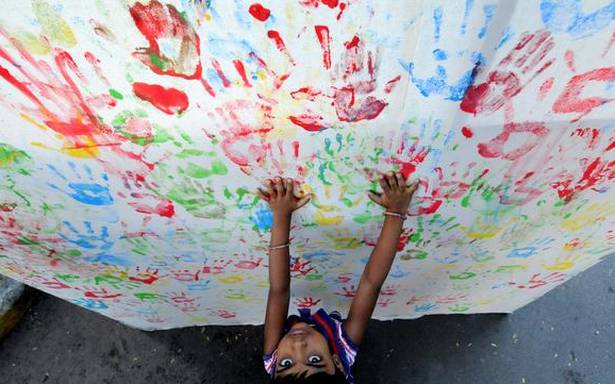Safety of students is a collective responsibility, say experts
The recent allegations of sexual harassment and misconduct against a teacher in a private school in the city, which spurred similar complaints on social media from other city school students, have thrown the spotlight on the need for a robust child protection policy in schools.
Stating that there was complete mismanagement of priorities among schools, Vidya Reddy from TULIR-Centre for the Prevention and Healing of Child Sexual Abuse, recalled an instance where a school refused to suspend an employee despite concerns raised by parents about his behaviour, since they were worried about finding a replacement for him.
“Any place that deals with facilities or services for students needs to have a robust clear-cut child protection policy with a well-defined code of conduct. It takes a community to come together to protect a child, and safety of students is a collective responsibility,” she said.
Activists are also stressing on the importance of victims in coming forward to file a formal complaint.
“A child protection policy in place, that the students, teachers, non-teaching staff and parents are aware of, will guide them on this. Otherwise, most institutions remain clueless on how to handle allegations of abuse on campus and have a knee-jerk ad hoc reaction as we have seen repeatedly,” Ms. Vidya said.
Panel soon
The Tamil Nadu School Education Minister on Tuesday said that a separate committee would be set up to handle complaints of students.
But what are the guidelines that the schools in the State are currently governed by?
Two incidents of crime against children in Delhi prompted the CBSE in September 2017 to issue new safety guidelines that said the onus of keeping students safe within schools would “solely lie upon the school authorities”.
Schools were also asked to constitute separate committees for redressal of grievances of the public, staff, parents and students. In 2018, schools were also asked to follow the comprehensive guidelines issued by the National Commission for Protection of the Rights of Children (NCPCR), which calls for setting up of a grievance committee for child sexual abuse in all schools.
The ‘Handbook on Implementation of Pocso Act, 2012, for School Management and Staff’ prescribed by the National Institute of Public Cooperation and Child Development (NIPCCD) also states that committees should be set up with students, as well as parent and management representatives on campus.
While Tamil Nadu has school safety guidelines for infrastructure, K.Shanmugavelayutham, convenor, TN Forces, said that the School Education Department needs to evolve a child protection policy that should be mandatorily implemented in all schools. So far, very few schools have taken the initiative to formulate their own policy.
Ramana Vidyalaya, a school in Sholinganallur, which has a child protection policy in place, said that they have a series of sessions with the teaching and non-teaching staff on campus as well as the students and parents to sensitise them about the robust policy.
“The policy not just takes into consideration the school campus, but cyber safety as well since classes have moved online for over a year now. We encourage constant dialogue between our students and an adult they trust about any concerns they might have. They are also made aware of Childline, Sneha’s helpline, as well as an organisation like TULIR they can reach out to,” said Gokul Chandrasekaran, a director of the institution.
“Even for schools that already have a redressal committee for the students or have set up complaint dropboxes, there needs to be an accountability system in place. How many schools declare information regarding the complaints they have handled through the year or the action taken?” questioned Andrew Sesuraj, State Convenor, Tamil Nadu Child Rights Watch.
Schools, he pointed out, should be ready to introspect on their shortcomings in order to put in place a robust system to deal with such safety concerns.
With students not being able to complain at schools, the lack of a congenial environment at home also means that they are stuck in a limbo, not knowing what to do. The presence of external members in a complaint redressal committee and not just limiting it to students and teachers from the school becomes important here.
“It is the school’s responsibility to ensure that information regarding Childline 1098 or organisations working on these issues are strategically disseminated so that it reaches the persons it is intended for,” Ms. Vidya said.
Source: Read Full Article

